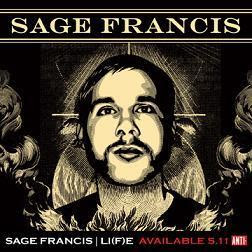South African white supremacist leader Eugene Terreblanche has been killed on his farm in the country's north-west.
Mr Terreblanche, 69, was beaten to death after a dispute over unpaid wages, local media reports said. Two people are said to have been arrested.
President Jacob Zuma has appealed for calm, saying the killing should not incite racial hatred.
Mr Terreblanche, who campaigned for a separate white homeland, came to prominence in the early 1980s.
TERREBLANCHE: KEY DATES 1941: Born on a farm in conservative Transvaal town of Ventersdorp 1973: Co-founds right-wing AWB to protect rights of Boers' descendants 1993: AWB vehicle smashes into World Trade Centre in Johannesburg during negotiations to end apartheid 1994: AWB invades tribal homeland of Bophuthatswana and is defeated, with three AWB members killed 1998: Accepts moral responsibility for 1994 bombing campaign that killed 21 people 2001: Jailed for assaulting security guard 2004: Released from prison |
"Mr Terreblanche's body was found on the bed with facial and head injuries," AFP news agency quoted a police spokesman as saying.
The report said he had been killed after a payment dispute with two workers, aged 21 and 15, who have been arrested in connection with his murder.
"He was hacked to death while he was taking a nap," a family friend in the town of Ventersdorp was quoted as telling Reuters news agency.
Mr Zuma condemned the killing as a "terrible deed".
"The president appeals for calm... and asks South Africans not to allow agent provocateurs to take advantage of this situation by inciting or fuelling racial hatred," his office said in a statement reported by South Africa's SAPA news agency.
"The murder of Terreblanche must be condemned, irrespective of how his killers think they may have been justified. They had no right to take his life."
Prison sentence
The murder comes amid growing anxiety about crime in South Africa and what opposition politicians say are irresponsible and racially inflammatory sentiments from a minority of the ruling ANC party, says the BBC's Karen Allen in Johannesburg. ANALYSIS Martin Plaut, Africa editor For most South Africans, Eugene Terreblanche was a throwback to another era. But his death is a blow to the country's image of racial tolerance, fostered so carefully by Nelson Mandela. Some are likely to believe that the fact that his alleged attackers were arrested so rapidly smacks of a cover-up. Others, on the minority far-right fringe, will see his death as a vindication of their assertion that whites cannot live under black rule. It is a tragic fact that more than 3,000 white farmers have been murdered since the end of apartheid in 1994. And it is possible that some people may seek retribution. Mr Terreblanche's funeral could become a rallying point for such sentiment. |
Our correspondent says it is too soon to say whether Saturday's killing was politically motivated.
However, a spokesman for Mr Terreblanche's Afrikaner Weerstandsbeweging (Afrikaner Resistance Movement - AWB) linked the killing to the recent singing of an apartheid-era song by the head of the ANC's youth league.
"That's what this is all about," Andre Visagie told Reuters news agency. "They used pangas and pipes to murder him as he slept."
A spokeswoman for the opposition Democratic Alliance party pointed to racial tension.
Juanita Terblanche, who is no relation, said: "This happened in a province where racial tension in the rural farming community is increasingly being fuelled by irresponsible racist utterances."
Mr Terreblanche was released from prison in 2004 after serving three years of a five-year term for attempted murder.
He had founded the white supremacist AWB in 1973, to oppose what he regarded as the liberal policies of the then-South African leader, John Vorster.
Terreblanche rides away after being released from prison in 2004 |
In the 1980s, the government of PW Botha considered a constitutional plan allowing South Africa's Asian and coloured (mixed-race) minorities to vote for racially segregated parliamentary chambers.
For the likes of Mr Terreblanche, this was the start of the slippery slope towards democracy, communism, black rule and the destruction of the Afrikaner nation, analysts say.
Claiming on occasion to be a cultural organisation - albeit one with sidearms and paramilitary uniforms - Mr Terreblanche and his men promised to fight for the survival of the white tribe of Africa.
An ill-fated military intervention into the Bophuthatswana homeland in 1994 ended with three AWB men being killed in front of TV cameras in a PR disaster that diminished further the seriousness with which Mr Terreblanche's movement was taken.
Mr Terreblance continued to campaign to preserve the apartheid system but lived in relative obscurity since it collapsed.
The AWB was revived two years ago and there had been recent efforts to form a united front among white far-right groups.





























